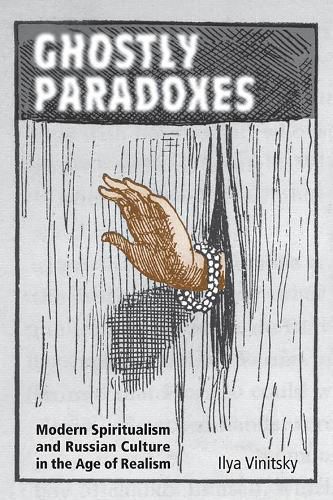Readings Newsletter
Become a Readings Member to make your shopping experience even easier.
Sign in or sign up for free!
You’re not far away from qualifying for FREE standard shipping within Australia
You’ve qualified for FREE standard shipping within Australia
The cart is loading…






The culture of nineteenth-century Russia is often seen as dominated by realism in the arts, as exemplified by the novels of Leo Tolstoy and Ivan Turgenev, the paintings of ‘the Wanderers,’ and the historical operas of Modest Mussorgsky. Paradoxically, nineteenth-century Russia was also consumed with a passion for spiritualist activities such as table-rappings, seances of spirit communication, and materialization of the ‘spirits.’ Ghostly Paradoxes examines the surprising relationship between spiritualist beliefs and practices and the positivist mindset of the Russian Age of Realism (1850-80) to demonstrate the ways in which the two disparate movements influenced each other.
Foregrounding the important role that nineteenth-century spiritualism played in the period’s aesthetic, ideological, and epistemological debates, Ilya Vinitsky challenges literary scholars who have considered spiritualism to be archaic and peripheral to other cultural issues of the time. Ghostly Paradoxes is an innovative work of literary scholarship that traces the reactions of Russia’s major realist authors to spiritualist events and doctrines and demonstrates that both movements can be understood only when examined together.
$9.00 standard shipping within Australia
FREE standard shipping within Australia for orders over $100.00
Express & International shipping calculated at checkout
The culture of nineteenth-century Russia is often seen as dominated by realism in the arts, as exemplified by the novels of Leo Tolstoy and Ivan Turgenev, the paintings of ‘the Wanderers,’ and the historical operas of Modest Mussorgsky. Paradoxically, nineteenth-century Russia was also consumed with a passion for spiritualist activities such as table-rappings, seances of spirit communication, and materialization of the ‘spirits.’ Ghostly Paradoxes examines the surprising relationship between spiritualist beliefs and practices and the positivist mindset of the Russian Age of Realism (1850-80) to demonstrate the ways in which the two disparate movements influenced each other.
Foregrounding the important role that nineteenth-century spiritualism played in the period’s aesthetic, ideological, and epistemological debates, Ilya Vinitsky challenges literary scholars who have considered spiritualism to be archaic and peripheral to other cultural issues of the time. Ghostly Paradoxes is an innovative work of literary scholarship that traces the reactions of Russia’s major realist authors to spiritualist events and doctrines and demonstrates that both movements can be understood only when examined together.